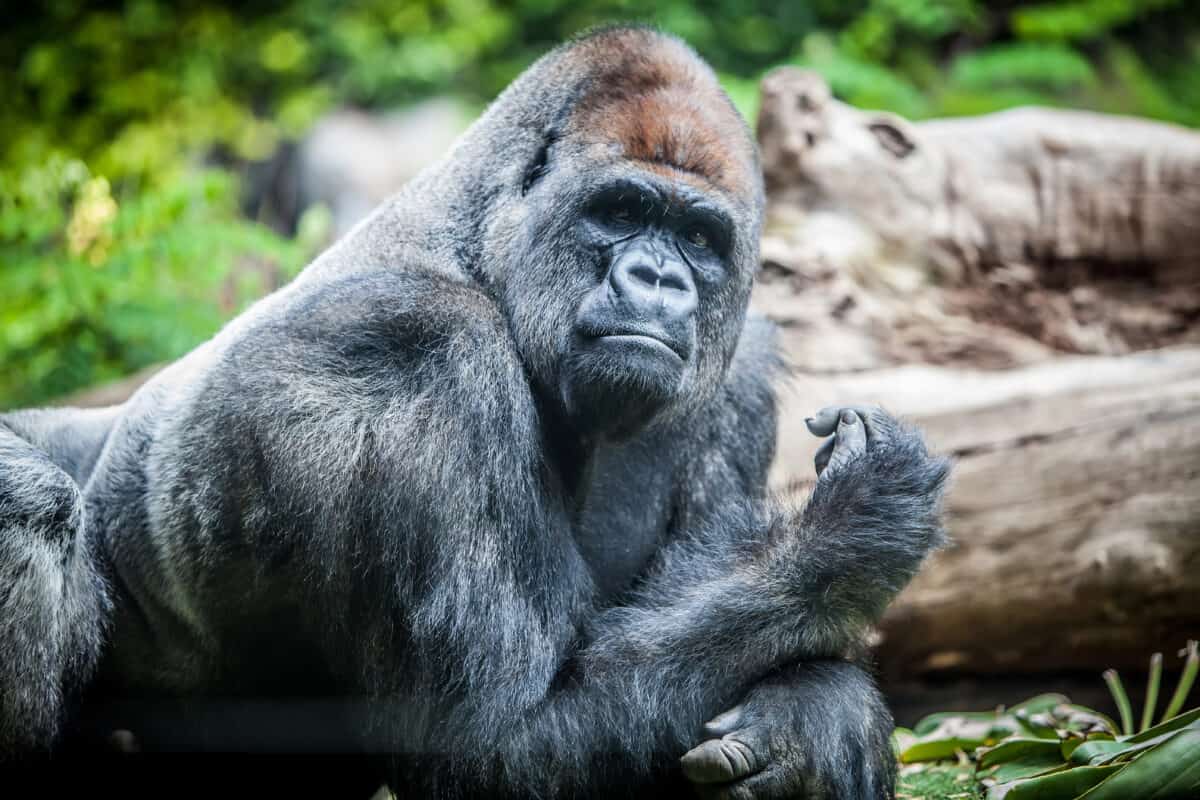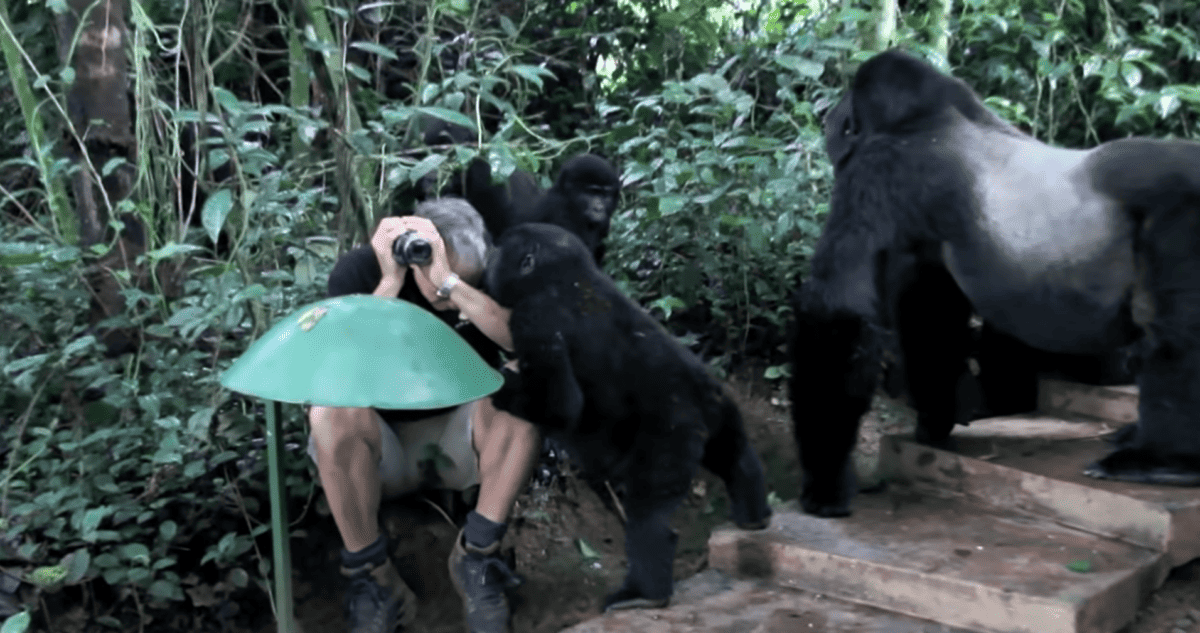In Bwindi National Park, southwest Uganda, John J King had one of the most astonishing experiences with a group of wild mountain Gorillas. Such close interactions between humans and gorillas in the wild are infrequent. The video has gone viral with over 32 million views on YouTube. While most people are amazed at the interaction, it has also sparked some scrutiny about ecotourism in Uganda. In this article, we address both sides of the story.
The video was shot in a private safari camp. To access this forest, you would need a permit from the Uganda Wildlife Authority. The permits are limited and cost around $600 per day! There is no guarantee that you will find gorillas; if you do, you must stay at least 7 meters away.
The Man’s Account
The man in the video joined a group of wildlife enthusiasts through the forest to find wild gorillas. They dedicated three days to the experience and were fortunate to find wild gorillas on all three days. On the first day, they spent one hour with a group of gorillas called the Habinyanja group. On the second day, they spent time with the Rushegura group.

On the third day, they woke up to find the Rushegura group just outside the camp. It seemed the group had followed them for hours back to their camp. Further details on John J King II’s experience with the gorillas can be found in his blog post here.
The video
In the video, touched by a Wild Mountain Gorilla, John is seated next to the group of gorillas; the young gorillas touch him and look through his hair, likely looking for parasites to clean him. The silverback sits directly behind him, seemingly unphased. The gorillas come right up close to him. One gorilla even licks his face! The silverback allows even the babies to come close to the man. The man is overwhelmed by this experience but looks ecstatic to be trusted by the gorillas.
Dr. Michele Goldsmith’s Take on Ecotourism
Dr Michele Goldsmith has dedicated 21 years to working with wild animals, particularly mountain gorillas. She has spent this time advocating for her continued existence and well-being. She expresses her concerns over ecotourism and discusses the risks of gorillas becoming too accustomed to human presence. These risks involve humans transmitting diseases to gorillas.
There is also a risk of potential harm from poachers. If gorillas are not afraid of humans, they might allow poachers to get too close, risking their lives.
Tourism’s Double-Edged Sword
While ecotourism has brought attention and money to Uganda’s endangered gorillas, it has also led to challenges such as over-habituation and insufficient benefits to local communities.
Conservation
Dr. Michele Goldsmith encourages an approach to conservation that focuses on the animal’s inherent worth, not just on their utility to humans. She emphasizes the need for ethical and sustainable practices that benefit gorillas and local communities.
You might also enjoy:
- Watch: The Largest Wild Gorilla Ever Recorded (589 pounds) on Video Here
- Watch: Gorilla Breakdancing at Dallas Zoo
- Watch: Gorilla Mother Shows Off her Baby to Zoo Visitor
Join our Forum for free today!

- The Bond Between a Wild Baby Bison and Her Rescuer - July 20, 2024
- An Excited Husky’s First Ever Time in Snow - July 20, 2024
- Top 20 Colorful Species To Brighten Your Day - July 14, 2024


